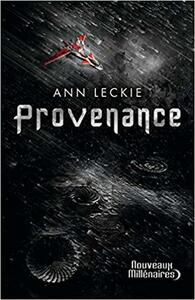You need to sign in or sign up before continuing.
Take a photo of a barcode or cover
adventurous
slow-paced
Plot or Character Driven:
Plot
Strong character development:
No
Diverse cast of characters:
Yes
Flaws of characters a main focus:
No
So many of the little elements of this story were awesome, but somehow it just didn't click with me.
Some of it was pure timing -with everything going on in my life right now, I just did not have the mental capacity left to learn new settings and cultures and names. SO MUCH of the plot went over my head because I just had no idea who anyone was or what they stood for.
Much of this is because I just did not click with any of the characters. I liked the idea of Ingray-I liked how she constantly doubted herself and cried at the drop of a hat and generally felt she wasn't good enough for anything. It hit kind of close to home, honestly. But to me she felt less like a fully fleshed character and more like a list of traits.
Again, most of this is because of timing. It took me three tries to get truly into Ancillary Justice, though once I did it quickly became one of my favorite books ever. I hope that next time I give Provenance a try, it'll be a more engaging read. For now, though, it was something I finished out of duty more than any sense of enjoyment.
Some of it was pure timing -with everything going on in my life right now, I just did not have the mental capacity left to learn new settings and cultures and names. SO MUCH of the plot went over my head because I just had no idea who anyone was or what they stood for.
Much of this is because I just did not click with any of the characters. I liked the idea of Ingray-I liked how she constantly doubted herself and cried at the drop of a hat and generally felt she wasn't good enough for anything. It hit kind of close to home, honestly. But to me she felt less like a fully fleshed character and more like a list of traits.
Again, most of this is because of timing. It took me three tries to get truly into Ancillary Justice, though once I did it quickly became one of my favorite books ever. I hope that next time I give Provenance a try, it'll be a more engaging read. For now, though, it was something I finished out of duty more than any sense of enjoyment.
emotional
funny
lighthearted
mysterious
tense
medium-paced
Plot or Character Driven:
A mix
Strong character development:
Yes
Loveable characters:
Yes
Diverse cast of characters:
Yes
Flaws of characters a main focus:
Complicated
Provenance is a great example of a realistic empire story. We know the characters in the Imperial Radch trilogy - in fact, Provenance is set in a neighboring system - and yet very little of that story actually shows up here, mostly because a) oddly enough, planets have their own interests even after they've been annexed and b) as you may recall, news isn't exactly spreading like wildfire, so even if the people on Hwae did have more of an interest in interplanetary affairs, they wouldn't know much more than the story tells, and as you quickly discover, they have their own stories going on.
While the characters in the trilogy don't show up, it's much easier to follow Provenance if you've read it already, so that when a character mentions something about the truce or when someone from the Geck shows up, you'll know why it's important without having to be told much. In fact, the story in Provenance ends up having little to do with the trilogy itself, but fits in very nicely with the timeline as it's laid out there. Furthermore, it'd be pretty hard to work in any of those original tales, since Provenance has enough storylines itself, and there are enough interesting changes that you'd be better off just reading the book as is rather than a parallel book with twice the threads to tie together.
There are definitely interesting twists ... but again, Leckie describes multiple societies dealing with multiple concepts of gender as though it were a perfectly natural thing to do (spoiler: it is), and it's not difficult to read a world like nuncle and draw up the right concept in your mind.
I struggled with two things about Provenance. One was that Ingray is initially not much of a sympathetic character; the other is that the meat of the story takes some time to arrive, and yes, the two are related. Once the main plot gets going, everything's fine and I know what I'm reading, but for the first couple of chapters, it was pretty difficult to see what I thought Leckie wanted me to see. If you dive into this book and stumble in the same section, stick with it. It'd be a shame if you never found out the significance of.
P.S. Don't bother much with the blurb. Ingray is hardly power-driven and doesn't crave status. A more accurate blurb would be "Desperate for her mother's approval, a young woman concocts a scheme that finds her catching a tiger by the tail, but she quickly finds out that she may not even have the right tiger and she's not the only one pulling tails ..."
While the characters in the trilogy don't show up, it's much easier to follow Provenance if you've read it already, so that when a character mentions something about the truce or when someone from the Geck shows up, you'll know why it's important without having to be told much. In fact, the story in Provenance ends up having little to do with the trilogy itself, but fits in very nicely with the timeline as it's laid out there. Furthermore, it'd be pretty hard to work in any of those original tales, since Provenance has enough storylines itself, and there are enough interesting changes that you'd be better off just reading the book as is rather than a parallel book with twice the threads to tie together.
There are definitely interesting twists ... but again, Leckie describes multiple societies dealing with multiple concepts of gender as though it were a perfectly natural thing to do (spoiler: it is), and it's not difficult to read a world like nuncle and draw up the right concept in your mind.
I struggled with two things about Provenance. One was that Ingray is initially not much of a sympathetic character; the other is that the meat of the story takes some time to arrive, and yes, the two are related. Once the main plot gets going, everything's fine and I know what I'm reading, but for the first couple of chapters, it was pretty difficult to see what I thought Leckie wanted me to see. If you dive into this book and stumble in the same section, stick with it. It'd be a shame if you never found out the significance of
Spoiler
the shoeP.S. Don't bother much with the blurb. Ingray is hardly power-driven and doesn't crave status. A more accurate blurb would be "Desperate for her mother's approval, a young woman concocts a scheme that finds her catching a tiger by the tail, but she quickly finds out that she may not even have the right tiger and she's not the only one pulling tails ..."
It was nice to return to the universe of the Ancillary series, and the aliens were fun, but this book was too full of political turmoil for me right now.
Ann Leckie's Ancillary Justice trilogy is one of the masterpieces of modern SF, so I was interested in reading her next thing. This is a very different book, more of a quirky little political murder mystery set in the same Imperial Radch universe as the trilogy. I am glad that I experienced this one on audio, as the fantastic quality of the narration kept me going, when I sometimes lost interest in the story and characters. In the end, it was a pleasant tale, but I would not recommend it to most readers. But if you are a fan of audiobooks, check it out.
Leckie is always a blast, but this doesn’t quite match Ancillary Justice’s lunch
It’s a fun read, especially if you’re already a fan of this universe. It’s great to see Leckie branch out from the Raadch and fill in some other corners of her meticulously crafted universe.
Still, it didn’t throttle me quite as thoroughly as did AJ, but I’d totally read a sequel with these characters.
It’s a fun read, especially if you’re already a fan of this universe. It’s great to see Leckie branch out from the Raadch and fill in some other corners of her meticulously crafted universe.
Still, it didn’t throttle me quite as thoroughly as did AJ, but I’d totally read a sequel with these characters.
I loved this book, though not quite as much as I loved the Imperial Radch trilogy. It has a very different feel to it, in that it's a bit more "traditional" in its plot, character development and pacing. I really enjoyed the characters, and the plot, and I especially like the way gender is handled in all of Ann Leckie's books. I'm not surprised that Provenance got a Hugo nomination this year, and I wouldn't be at all disappointed if it won, though it's not my favorite of the nominees. Certainly worth reading, as all of Leckie's books are!
*2.5 stars*
Before I say anything I want to preface this with I did not dislike this book, I liked a lot of what it was doing ideologically, the execution just felt lackluster, hence a straight down the middle average rating. This did not turn me off of Ann Leckie, and I’m still very much intending on reading her first trilogy as I think I’ll get along with that much better.
Many of my issues with this novel came down to what I felt was just a lack of polish and nuance. I liked the themes Leckie was attempting to engage with here, but I thought they were done a bit ham-fistedly, and I wish they were woven in a bit steadier. Additionally, I thought all the characters were just fine. Their motivations were given to us very plainly, and repeatedly, which could get tedious at times, and I didn’t feel any sort of actual interest in any of them, they seemed to lack depth and complexity. Again, they weren’t bad, just not enough. Similarly, I felt like too much of the plot was just explained to the reader point-blank and dumped on us, with plot beats happening, then getting a full page explanation about why and how. I commend Leckie for her worldbuilding, and for the intricate cultures and politics she’s set up, but how it worked with this plot just didn’t feel as naturally integrated as I would have liked. Nothing about the plot kept me entirely engaged, and it just felt a bit cut and dry, with the subplots slightly moving along the way but not really amounting to much in the end. Lastly, as a personal preference I was really not a fan of the writing style employed. It felt very simplistic, and the dialogue felt awkward and clunky at times.
Overall, I must admit I was slightly disappointed in this novel, but I don’t think it’s Leckie overall that I take issue with, it seems to just be the execution and construction of this novel overall. It just felt lacking in so many ways to me, and I have hope I’ll find “Ancillary Justice” to be more up my alley!
Before I say anything I want to preface this with I did not dislike this book, I liked a lot of what it was doing ideologically, the execution just felt lackluster, hence a straight down the middle average rating. This did not turn me off of Ann Leckie, and I’m still very much intending on reading her first trilogy as I think I’ll get along with that much better.
Many of my issues with this novel came down to what I felt was just a lack of polish and nuance. I liked the themes Leckie was attempting to engage with here, but I thought they were done a bit ham-fistedly, and I wish they were woven in a bit steadier. Additionally, I thought all the characters were just fine. Their motivations were given to us very plainly, and repeatedly, which could get tedious at times, and I didn’t feel any sort of actual interest in any of them, they seemed to lack depth and complexity. Again, they weren’t bad, just not enough. Similarly, I felt like too much of the plot was just explained to the reader point-blank and dumped on us, with plot beats happening, then getting a full page explanation about why and how. I commend Leckie for her worldbuilding, and for the intricate cultures and politics she’s set up, but how it worked with this plot just didn’t feel as naturally integrated as I would have liked. Nothing about the plot kept me entirely engaged, and it just felt a bit cut and dry, with the subplots slightly moving along the way but not really amounting to much in the end. Lastly, as a personal preference I was really not a fan of the writing style employed. It felt very simplistic, and the dialogue felt awkward and clunky at times.
Overall, I must admit I was slightly disappointed in this novel, but I don’t think it’s Leckie overall that I take issue with, it seems to just be the execution and construction of this novel overall. It just felt lacking in so many ways to me, and I have hope I’ll find “Ancillary Justice” to be more up my alley!
A quieter volume than the rousing ancillary trilogy but it showcases leckie’s trademark warmth. It builds slowly but the intimacy the reader feels with the characters by the end is what i would call classic leckie charm. Once again she has invented a new vocabulary i have added to my daily or at least weekly lexicon: vestiges being the obvious favorite.






